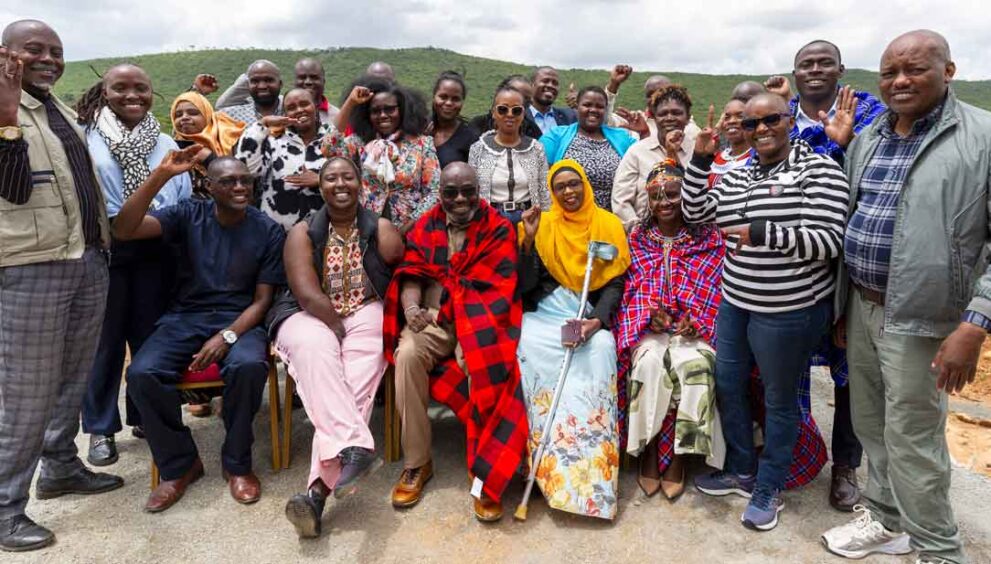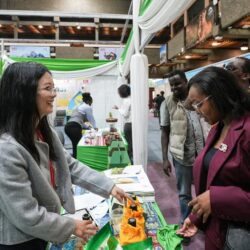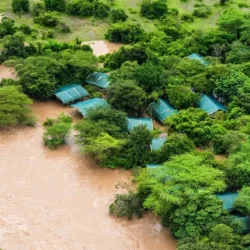SAMBURU COUNTY, Kenya — For most of her life in this arid corner of East Africa, Florence Ntisai lived in the silence of exclusion. Born with phocomelia, a congenital condition that left her with underdeveloped arms, traditional beliefs and a profound lack of awareness in Samburu County meant women with disabilities like her were often kept hidden, their voices absent from public life.
“I couldn’t even stand up to introduce myself,” Ms. Ntisai, 48, recalled of her earlier years.
Today, however, she stands at the forefront of climate advocacy in her community, demonstrating a powerful shift that is redefining who gets to shape Africa’s response to its accelerating climate crisis. Ms. Ntisai now leads the Kimunyak Differently Abled Initiative (KDAI), an organization that has helped dozens of women with disabilities claim their place in local climate governance.
A Project to Amplify Marginalized Voices
Ms. Ntisai’s transformation began in 2024 when she joined the Strengthening the Voices of Women with Disabilities to Actively Participate in Climate Change Policy and Negotiations (STREVOW), a three-year initiative spanning 12 East African countries and Small Island Developing States.
The project, funded by the Africa Climate Change Fund (ACCF), is a direct challenge to the reality that women with disabilities are often among the most vulnerable to climate impacts—prolonged droughts and flash floods plague Samburu—yet are systematically excluded from discussions on solutions.
Its goal is ambitious: to shift these women from being overlooked victims to acknowledged actors. Implemented by Inclusive Climate Change Adaptation for a Sustainable Africa and the Centre for Minority Rights Development, the initiative provides training on climate change policy, advocacy, and public speaking, alongside mentorship and leadership development.
“I have gained confidence,” Ms. Ntisai said, explaining the impact of the training. “Now I use what I learned to advocate for my rights and those of others.”
From Trainee to Local Leader
Inspired by her new skills and confidence, Ms. Ntisai founded KDAI. Her community-based organization promotes inclusive climate action and sustainable livelihoods, filling a critical void in a region grappling with environmental hardship.
KDAI has so far supported 53 women with disabilities, including adolescent girls, young mothers, and caregivers. These women are now participating directly in local climate dialogues, pushing for policies that reflect their unique vulnerabilities and experiences.
The challenge Ms. Ntisai overcame is not an isolated one. Halima Shariff, Founder of Women of Hope Abled Differently (WHAD), shared a similar account of empowerment. “The STREVOW trainings have built my capacity on climate change negotiations and policy,” said Ms. Shariff. “It also gave me courage to speak out as an indigenous and minority woman.”
Breaking Barriers in Policy Forums
Early achievements of the STREVOW project were highlighted at a regional review in April 2025. Participants reported a stronger understanding of the complex intersections of gender, disability, and climate policy. Crucially, the women have demonstrated a heightened capacity to influence negotiations and have secured participation in multiple decision-making forums.
The project has established a regional platform to ensure the perspectives of women with disabilities are permanently integrated into climate governance structures across East Africa. It has also begun opening doors at the international level, enabling these women to attend and contribute meaningfully to United Nations-led global climate change negotiations—a significant milestone in dismantling long-standing barriers to their participation.
Rita Effah, Senior Climate Finance Officer at the African Development Bank and ACCF Coordinator, underscored the necessity of this inclusion. “When it comes to the impact of climate change and extreme weather events, persons with disabilities are among the most vulnerable in our communities,” Ms. Effah said during a recent supervision mission. “But often their voices are absent from climate change policy discussions—a disservice to this vital constituency. That is why this project STREVOW is very important.”




